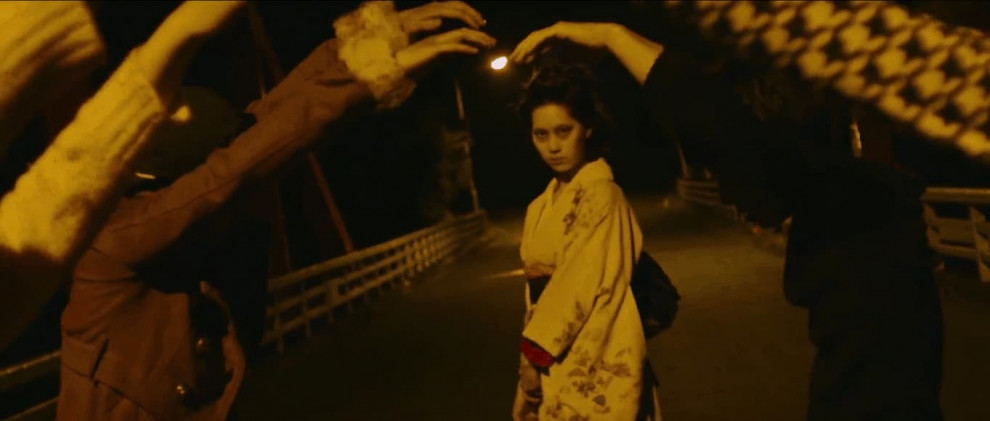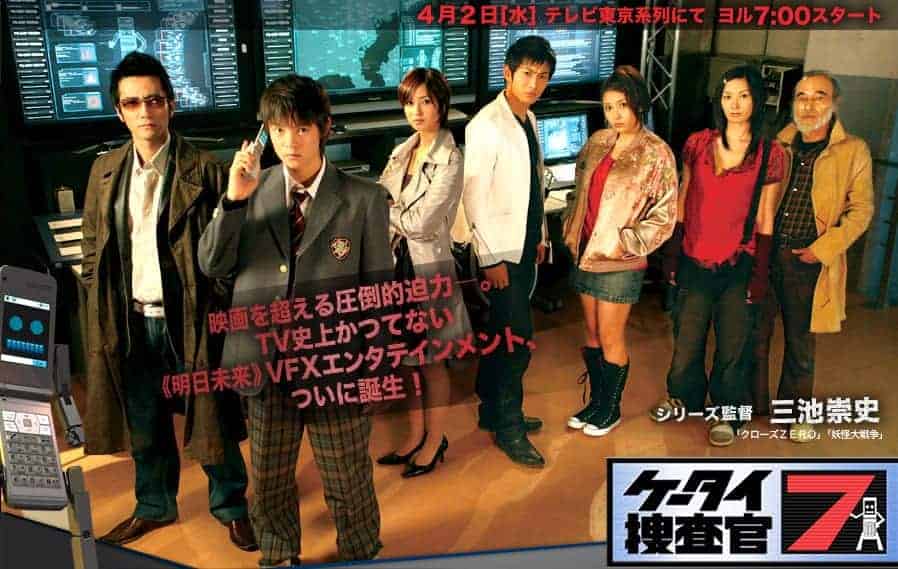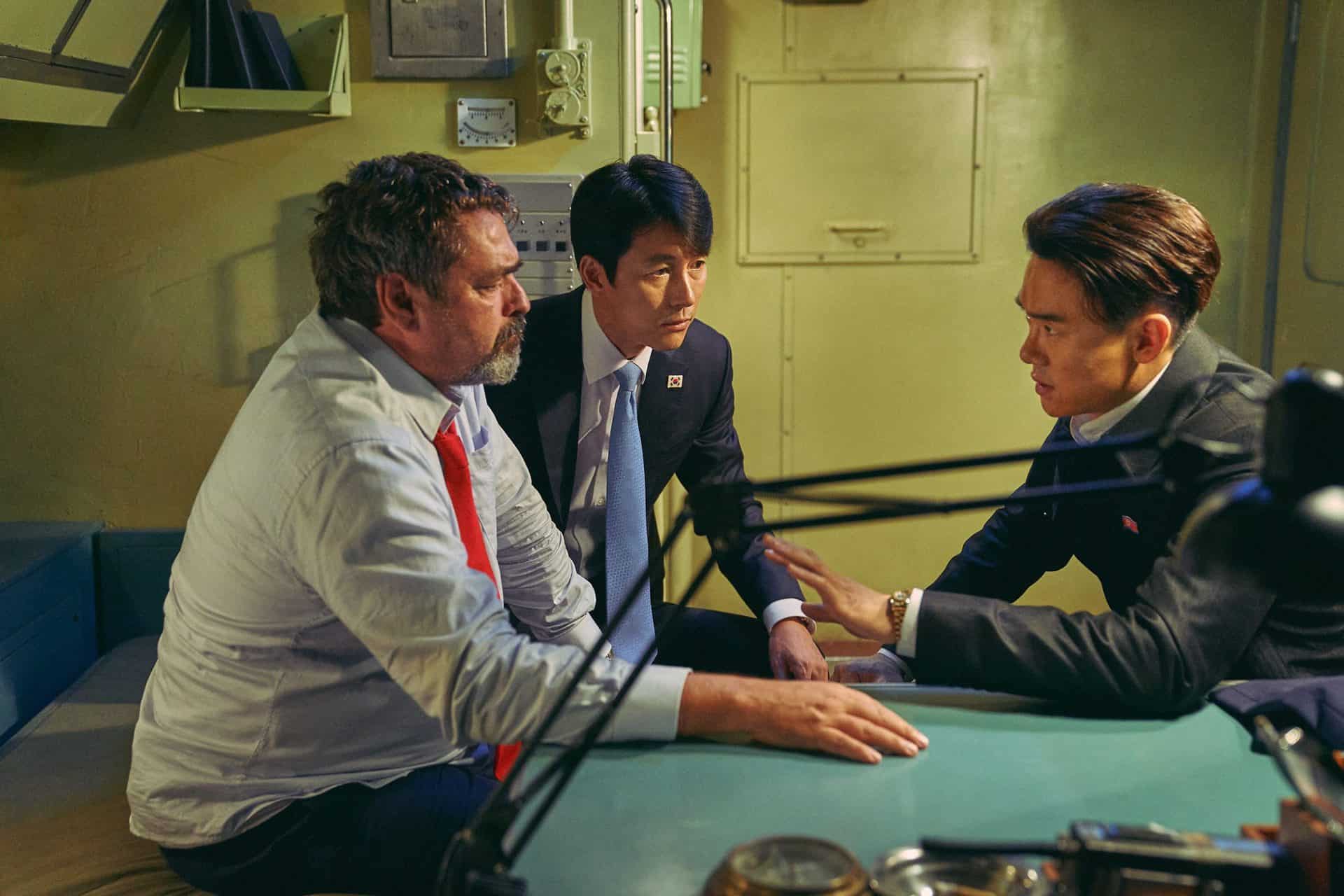Misa is a struggling screenwriter facing scrutiny from her co-workers as she attempts to pen a new horror film. However, she finds inspiration in a small town legend of a Geisha who committed suicide and now haunts the village. Deciding to head out to the village, Misa and the production team soon find themselves under attack by a zombie swarm.
Night of the Dead Geisha is screening at Japan Film Fest Hamburg

As the body count begins to build, Misa realizes that her script has revived the dead and everything she writes plays out in real life. The troubled writer begins to write her revenge on the people who held her back, creating absurd scenarios that the production crew seem to have no way of stopping.
“Night of the Dead Geisha” is a fast paced comedy/horror film which embraces the absurd in content and style. The most noticeable aspect of the production is its willingness to experiment and create memorable visuals. It is hard to really describe the amount of insanity packed into 45 minutes, with constantly shifting camerawork and effects. Certain scenes are bound to be seared into the memory of fans as the production just offers up so many visual ideas. However, the willingness to experiment does also act to limit the end product, stripping it of a strong identity. When certain scenes fall flat, either to weaker gags or odd visuals, they stick out in an uncomplimentary way. The tone is too offbeat in execution, causing a constant shift in the ability to keep interest in the narrative.

The soundtrack deserves a special note, as it mixes pop, funk and rock complimenting the absurd and fast pace of the film. The opening credits, which appear several minutes after the opening scene, contain an original theme song which melds so well together. The score is constant and always compliments the visual experimentation. In the absence of such a strong score, “Night of the Dead Geisha” would not be nearly as successful in execution.
With the production being pretty fast paced, it is hard to be too critical of the performances, with a majority of the dialogue being delivered through screams. It maintains a certain level of camp, which at times can be grating, but it does not feel like the shortcoming of the performances and more within the script. The one standout in the production comes in the way of Iona as the troubled script writer Mira. Iona plays with the frantic nature of her character in a convincing style that overshadows the rest of the cast. Her performance is thoroughly enjoyable and it will be exciting to see her in any future productions.

Although the film has a short runtime, “Night of the Dead Geisha” was a bit of a patience tester for myself. The film hits some great comedic highs, but it also trips over itself a lot. There were moments that had me grinning and laughing out loud. However, a bit more character development and script work would have been beneficial. The plot seems to serve just to make it to the next attempt at a showcase of visual ideas. Unfortunately, the film does suffer a bit from timing as the concept of a “film within a film” will probably come under higher scrutiny by viewers due to the sensational “One Cut of The Dead” still in recent memory.
Overall, Kiyote Naruse shows an emerging talent, and “Night of the Dead Geisha” has a delirious and unique style, packed into 45 minutes, the film is bound to entertain fans of comedy/horror.















